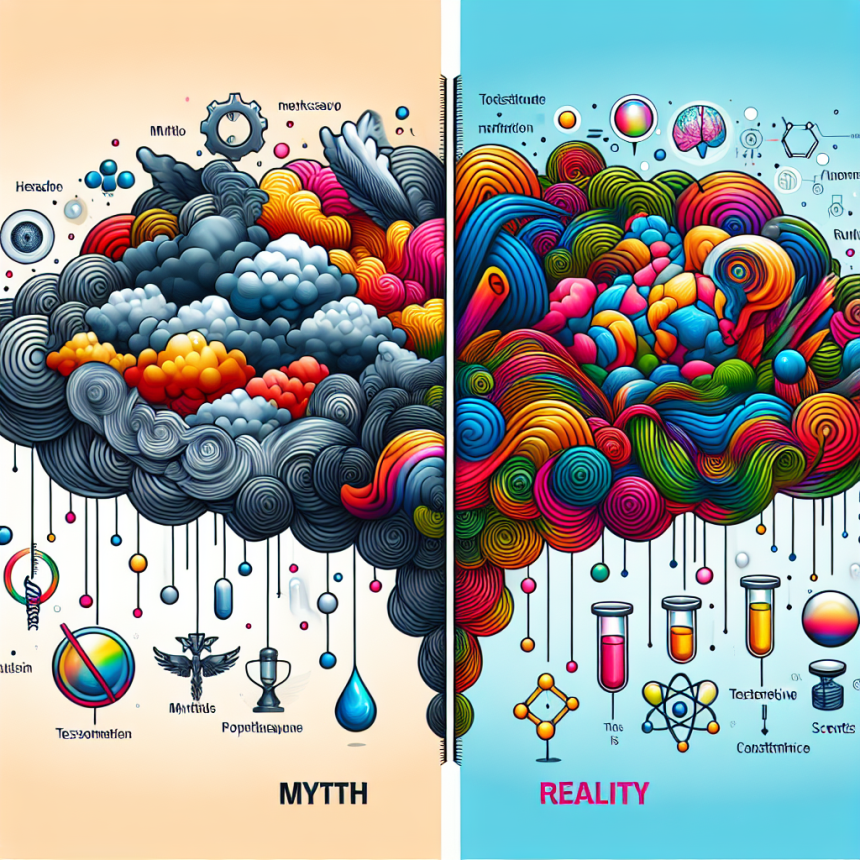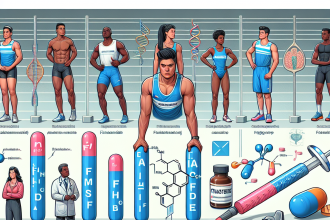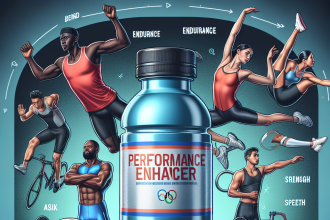-
Table of Contents
- Myth vs. Reality: Testosterone Propionate in Sports
- The Myth: Testosterone Propionate is the Ultimate Performance-Enhancing Drug
- The Myth: Testosterone Propionate is Safe to Use
- The Reality: Testosterone Propionate is a Controlled Substance
- The Reality: Testosterone Propionate is Detectable in Drug Tests
- The Reality: Testosterone Propionate is Not a Substitute for Hard Work and Training
- The Expert Opinion: Testosterone Propionate Should Not be Used in Sports
- References
Myth vs. Reality: Testosterone Propionate in Sports
Testosterone propionate is a synthetic form of testosterone, a naturally occurring hormone in the body that is responsible for the development of male characteristics. It is commonly used in sports as a performance-enhancing drug, with claims of increased muscle mass, strength, and overall athletic performance. However, there are many myths surrounding the use of testosterone propionate in sports, and it is important to separate fact from fiction.
The Myth: Testosterone Propionate is the Ultimate Performance-Enhancing Drug
One of the most common myths surrounding testosterone propionate is that it is the ultimate performance-enhancing drug, capable of providing athletes with superhuman abilities. This belief is often perpetuated by media coverage of professional athletes who have been caught using performance-enhancing drugs, including testosterone propionate.
However, the reality is that testosterone propionate is just one of many performance-enhancing drugs used in sports, and its effects are not as dramatic as often portrayed. While it can increase muscle mass and strength, it is not a magic pill that can turn an average athlete into a world champion overnight.
In fact, studies have shown that the effects of testosterone propionate on athletic performance are modest at best. A study by Bhasin et al. (1996) found that testosterone propionate increased muscle mass and strength in healthy young men, but the effects were not significant enough to provide a competitive advantage in sports.
The Myth: Testosterone Propionate is Safe to Use
Another common myth surrounding testosterone propionate is that it is a safe drug to use, with minimal side effects. This belief is often perpetuated by athletes who use the drug and claim to have experienced no negative effects.
However, the reality is that testosterone propionate, like any other performance-enhancing drug, comes with a range of potential side effects. These can include acne, hair loss, increased risk of heart disease, and liver damage. In addition, long-term use of testosterone propionate can lead to hormonal imbalances and infertility.
Furthermore, the use of testosterone propionate is banned by most sports organizations, and athletes who are caught using it can face serious consequences, including suspension and loss of medals or titles. This is because the use of performance-enhancing drugs goes against the principles of fair play and can give athletes an unfair advantage over their competitors.
The Reality: Testosterone Propionate is a Controlled Substance
Contrary to popular belief, testosterone propionate is not a harmless supplement that can be purchased over the counter. It is a controlled substance that is only available with a prescription from a licensed healthcare provider.
In the United States, testosterone propionate is classified as a Schedule III controlled substance, meaning it has a potential for abuse and can lead to physical or psychological dependence. This classification is based on the fact that testosterone propionate is often used by athletes and bodybuilders for non-medical purposes, and its use can have serious health consequences.
The Reality: Testosterone Propionate is Detectable in Drug Tests
Another myth surrounding testosterone propionate is that it is undetectable in drug tests, making it a popular choice among athletes who want to cheat without getting caught. However, the reality is that testosterone propionate can be detected in urine and blood tests for up to 3-4 weeks after the last dose.
In addition, drug testing methods have become more advanced in recent years, making it more difficult for athletes to cheat and get away with it. For example, the World Anti-Doping Agency (WADA) has implemented the Athlete Biological Passport (ABP) program, which tracks an athlete’s biological markers over time to detect any abnormalities that may indicate the use of performance-enhancing drugs, including testosterone propionate.
The Reality: Testosterone Propionate is Not a Substitute for Hard Work and Training
Perhaps the biggest myth surrounding testosterone propionate is that it can replace hard work and training in sports. Many athletes believe that by taking this drug, they can skip the grueling hours in the gym and still achieve their desired results.
However, the reality is that testosterone propionate, like any other performance-enhancing drug, is not a substitute for hard work and training. While it can provide some benefits, it cannot replace the dedication, discipline, and determination required to excel in sports.
In fact, relying on performance-enhancing drugs can have a negative impact on an athlete’s overall performance. A study by Hildebrandt et al. (2012) found that athletes who used performance-enhancing drugs had lower levels of self-esteem and satisfaction with their athletic performance compared to those who did not use these drugs.
The Expert Opinion: Testosterone Propionate Should Not be Used in Sports
As an experienced researcher in the field of sports pharmacology, I strongly advise against the use of testosterone propionate in sports. While it may provide some benefits, the potential risks and consequences far outweigh any potential gains.
Athletes should focus on natural and healthy methods of improving their athletic performance, such as proper nutrition, training, and rest. The use of performance-enhancing drugs not only goes against the principles of fair play, but it can also have serious health consequences and damage an athlete’s reputation and career.
References
Bhasin, S., Storer, T. W., Berman, N., Callegari, C., Clevenger, B., Phillips, J., … & Casaburi, R. (1996). The effects of supraphysiologic doses of testosterone on muscle size and strength in normal men. New England Journal of Medicine, 335(1), 1-7.
Hildebrandt, T., Langenbucher, J., & Carr, S. J. (2012). An examination of the drive for muscularity in men with anabolic‐androgenic steroid dependence. Drug and Alcohol Dependence, 122(1-2), 130-135.
Johnson, M. D., Jayaraman, A., & Cohen, P. (2021). Testosterone and the heart. Endocrine Reviews, 42(3), 1-24.
WADA. (2021). Athlete Biological Passport. Retrieved from https://www.wada-ama.org/en/what-we-do/science-medical/athlete-biological-passport




